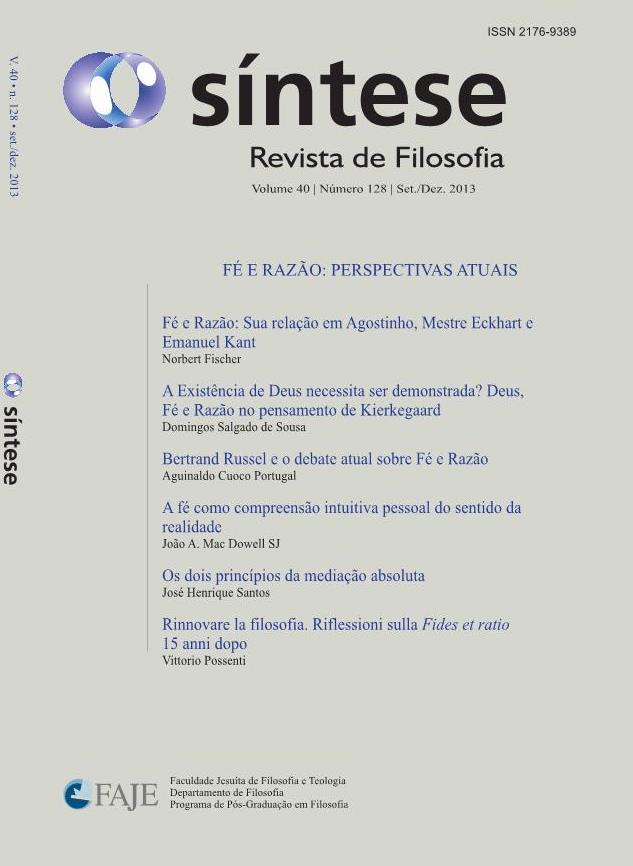OS DOIS PRINCÍPIOS DA MEDIAÇÃO ABSOLUTA
DOI:
https://doi.org/10.20911/21769389v40n128p457-480/2013Palavras-chave:
Mediação humano/divina, kenose, dois-em-um.Resumo
Este ensaio trata do duplo sentido subjacente à doutrina da encarnação. A natureza humano/divina do Cristo indica o percurso da “ascensão especulativa” que precisa ir para chegar a vir: só podeis (v)ir ao Pai por meio de mim. A teologia produz um discurso antecipado que só começa a gerar sentido (para nós) “de baixo para cima”, mas que pressupõe, ao mesmo tempo, a graça do Deus Criador vindo ao encontro do homem. Tento expor, na medida do possível, a severa lógica do discurso dogmático e sua intrínseca racionalidade. A tese implícita no texto supõe sintética a priori a identidade do Pai e do Filho, e não analítica. (Ver referência a Hipólito de Roma).
Abstract: This essay focuses on the double meaning underlying the doctrine of incarnation. The human/divine nature of Christ puts us on the path of the “speculative ascent” that needs to come in order do come back: you can only get to the Father through me. Theology produces an anticipated discourse which only starts making sense (for us) “from bottom to top” but that, at the same time, presupposes the grace of the Lord, Lord the Creator who came forth to meet mankind. The attempt here will be to determine, as far as possible, the strict logic of the dogmatic discourse along with its intrinsic rationality. The implicit thesis of the text supposes that the identity of the Father and of the Son is a priori synthetic and not analytic (see the reference to Hippolytus of Rome)


















